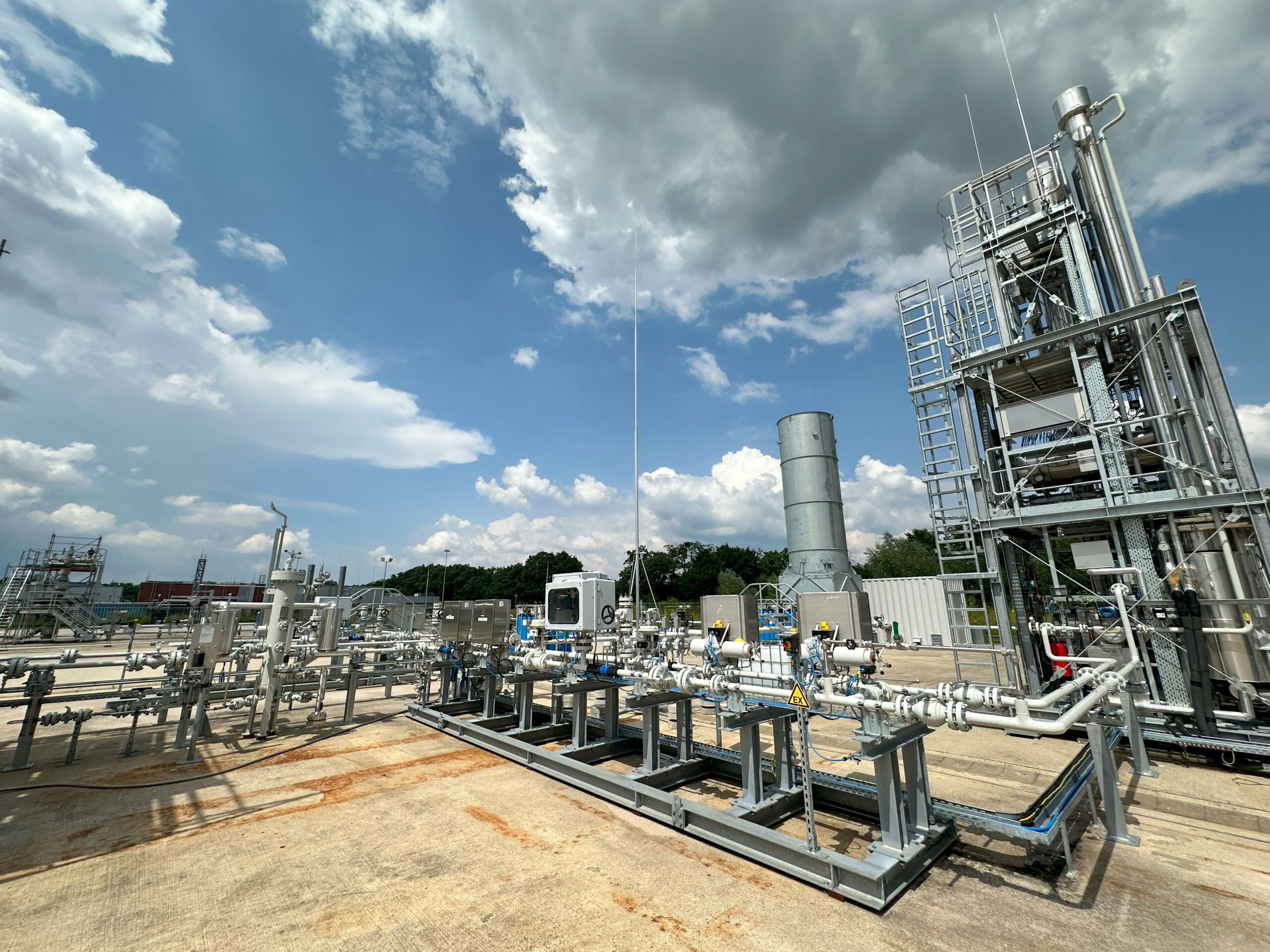EWE has completed its HyCAVmobil research project at the gas storage site in Rüdersdorf near Berlin, showcasing the successful and safe storage of hydrogen in underground salt caverns. In collaboration with the German Aerospace Center (DLR), EWE also confirmed that hydrogen purity changes minimally during storage, making it viable for applications like fuel cells in the mobility sector.
Paving the Way for Large-Scale Hydrogen Storage
The findings from the 500-cubic-meter test cavern will be applied to future projects involving caverns up to 1,000 times larger.
“Our goal is to establish large-scale hydrogen storage caverns. With 37 salt caverns, EWE holds over 15% of Germany’s cavern storage facilities suitable for hydrogen,” said Stefan Dohler, CEO of EWE, during the final press conference in Rüdersdorf.
This capability enables large-scale storage of green hydrogen produced from renewable energy sources, a critical component for achieving Germany’s climate goals and ensuring energy security.
Achievements and Challenges
Since the project’s start in 2019, EWE has achieved several milestones:
- Proved the leak-tightness of the borehole at a depth of 1,000 meters, ensuring safe hydrogen storage.
- Overcame hydrogen-specific challenges, such as cementing between the rock and steel pipes, through rigorous testing and adjustments.
- Successfully stored and retrieved hydrogen at varying pressures, gaining insights into operational parameters and ensuring its high purity.
Alexander Dyck, Head of Urban and Building Technologies at DLR, emphasized the significance of the results:
“Our investigations confirmed that the cavern can serve as a large-scale hydrogen storage solution. The hydrogen’s purity remains high, requiring only minimal purification for further use.”
Expanding Hydrogen Storage Capacity
EWE is now applying the lessons learned from Rüdersdorf to a large-scale project in Huntorf, where a former natural gas cavern will be converted for hydrogen storage. However, purity assessments will be required due to residual natural gas in the cavern. The Huntorf project is part of the Clean Hydrogen Coastline initiative, which integrates hydrogen production, storage, transport, and industrial usage.
The Need for Policy and Regulatory Support
Despite technological advancements, EWE CEO Stefan Dohler highlighted the urgent need for a supportive regulatory framework:
“Hydrogen storage systems require significant investment and cannot be developed competitively without start-up support. Policies and financing mechanisms must align with the hydrogen core network development to ensure system stability and efficient integration of renewable energy.”
Strategic Integration into Germany’s Hydrogen Core Network
Rüdersdorf’s location near Berlin and key hydrogen pipelines makes it an ideal candidate for integration into Germany’s hydrogen infrastructure. EWE has signed a letter of intent with ONTRAS Gastransport to connect the site to the national hydrogen network and is evaluating further expansions at Rüdersdorf.
HyCAVmobil Insights and Investments
The project has already provided critical insights:
- High purity levels in newly built hydrogen caverns.
- Enhanced requirements for leak-tightness due to hydrogen’s smaller molecular size.
- Innovative testing methods, such as using a simulated mini-cavern to analyze material properties and microbial activity.
EWE invested €14 million in the project, with €6.5 million provided through the National Innovation Programme for Hydrogen and Fuel Cell Technology (funded by Germany’s Federal Ministry for Digital and Transport).
Next Steps
EWE is planning additional tests at Rüdersdorf to further explore hydrogen’s behavior, such as its mixing with natural gas and water vapor content. Once the regulatory framework is in place, EWE intends to expand its hydrogen storage projects and rapidly implement plans for larger facilities across Germany.
Transforming Energy Storage for a Sustainable Future
By demonstrating the feasibility of safe, large-scale hydrogen storage, EWE’s HyCAVmobil project establishes a critical foundation for integrating renewable hydrogen into Germany’s energy system. These advancements are poised to drive decarbonization efforts and enhance the country’s energy security, supporting the global shift toward a sustainable future.


